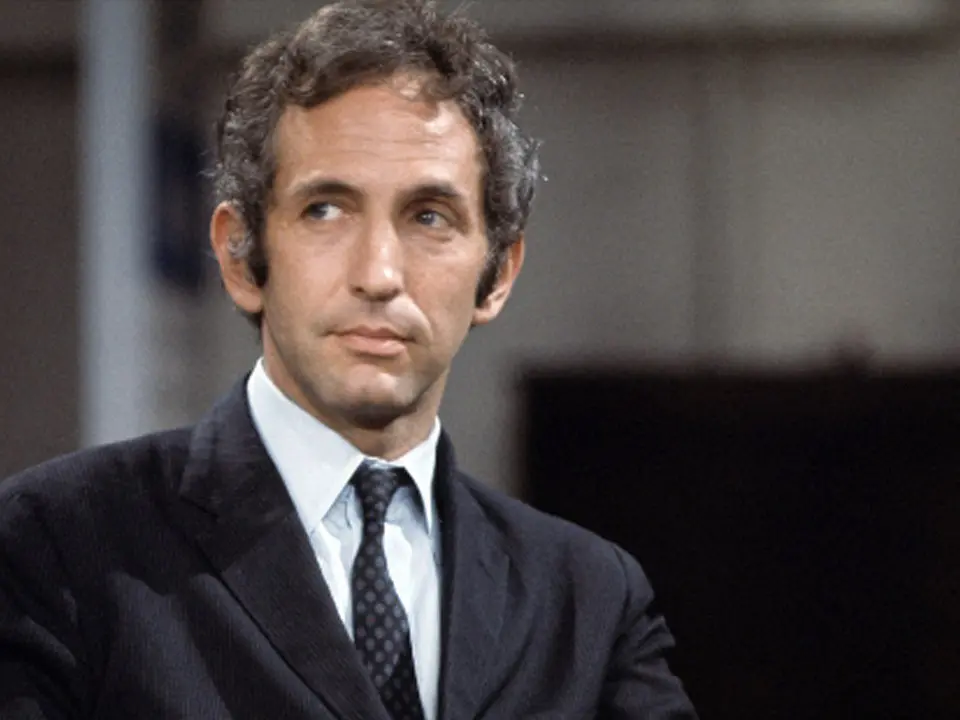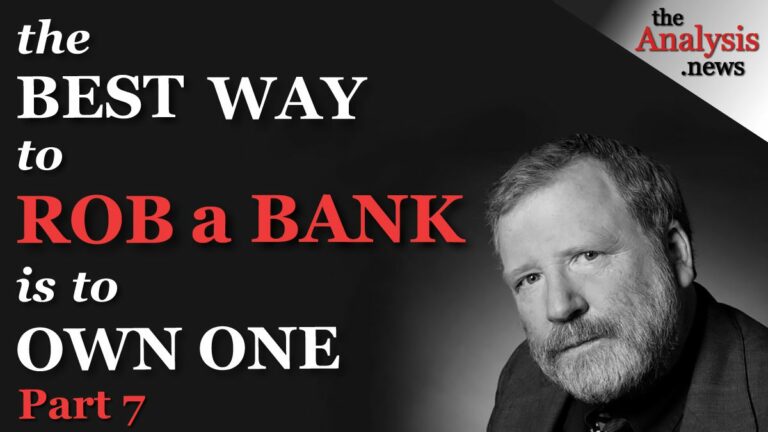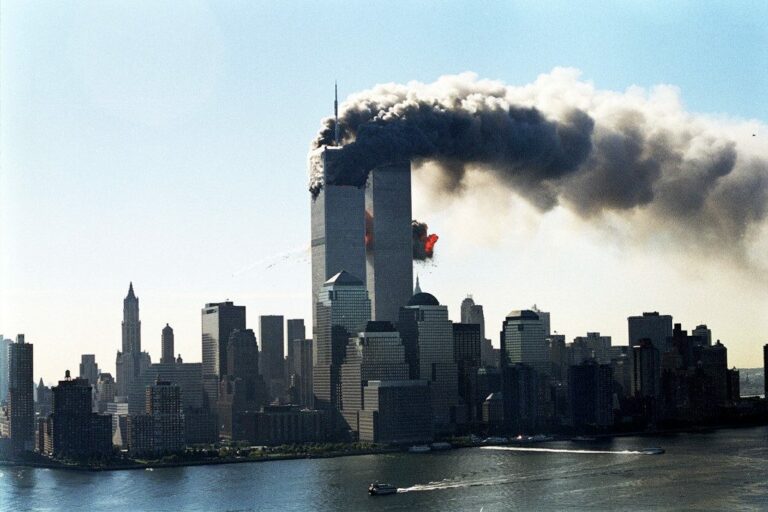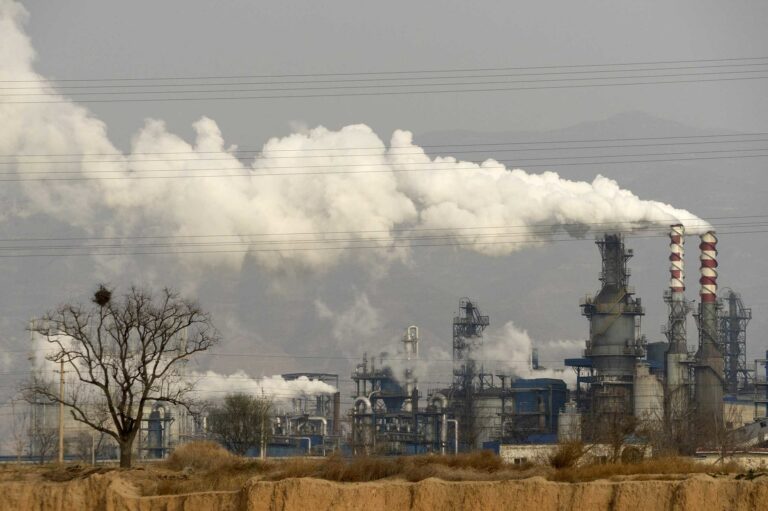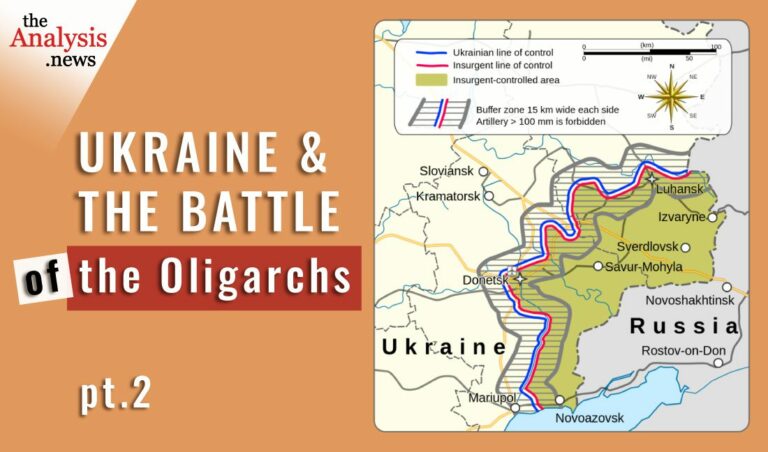The Doomsday Machine: The Big Lie of the Cold War – Daniel Ellsberg on RAI Pt 1/13
On Reality Asserts Itself, Daniel Ellsberg tells host Paul Jay that US intelligence agencies knew that Stalin was not planning to invade Western Europe or seek world domination, but based on the myth, the world came close to nuclear war – and it’s all happening again. This is an episode of Reality Asserts Itself, produced October 29, 2018, with Paul Jay.
STORY TRANSCRIPT
PAUL JAY: Welcome to The Real News Network. I’m Paul Jay, and this is Reality Asserts Itself. And I’m in Berkeley, California.
Daniel Ellsberg is a former U.S. military analyst employed by the RAND Corporation who precipitated a national political controversy in 1971 when he released the Pentagon Papers, the top-secret Pentagon study of U.S. government decision making about the Vietnam War. He has written many books and has been the subject of documentary films. Perhaps no single whistleblower has made such a heroic contribution in exposing the real aims of U.S. foreign policy and war planning. His recent book is entitled The Doomsday Machine: Confessions of a Nuclear War Planner.
The Doomsday Machine is, to my mind, the most important modern history book certainly I’ve ever read. Ellsberg not only debunks the central thesis of the Cold War and U.S. foreign policy for the last 75 years, but warns of the current danger of nuclear catastrophe. Because of what’s at stake it’s an absolute must-read for anyone that cares about our future.
Here’s how Ellsberg describes the book’s objective:
“The hidden reality I aim to expose is that for over 50 years all-out thermonuclear war- an irreversible, unprecedented, and almost unimaginable calamity for civilization and most life on Earth- has been, like the disasters of Chernobyl, Katrina, the Gulf oil spill, Fukushima, and before these World War I, a catastrophe waiting to happen, on a scale infinitely greater than any of these. And that is still true today.
“No policies in human history have more deserved to be recognized as immoral or insane. The story of how this calamitous predicament came about and how and why it has persisted over a half a century is a chronicle of human madness. Whether Americans, Russians, and other humans can rise to the challenge of reversing these policies and eliminating the danger of near-term extinction caused by their own inventions and proclivities remains to be seen. I choose to join with others in acting as if that is still possible.”
Now joining us in Berkeley, California is Daniel Ellsberg. Thanks so much for joining us.
DANIEL ELLSBERG: Thank you very much.
PAUL JAY: I had enormous respect for you before I read this book. And you truly scared the hell out of me with this book, and I think it’s just what we need.
First of all, before we start going through some of the main historic points of the book, for a lot of people- and this is a, the nuclear danger that- you know, the idea of a potential catastrophe, we’re past that. You know, the Soviet Union is gone. We’re no longer in, supposedly in a Cold War, although some people seem to want to start another one. Talk a bit about what you think is the current danger, and why this history matters so much.
DANIEL ELLSBERG: As you say, we are, unfortunately, reproducing some of our own worst past history of the last century. The Cold War, I think, was itself a catastrophic policy course, since it resulted in the creation of two doomsday machines, U.S. and Russia, each of them capable of near extinction of human life, and together coupled by hair triggers form a mutual doomsday machine that’s even far worse and twice as dangerous as one of them alone.
So that was a terrible price of the Cold War, whatever else can be said in favor of the policies, or in support of the idea that it was inevitable, which I used to believe and which I think was very deceptive. But we see people now without the same ideological conflict that could be appealed to before with the Soviet Union, or with Russia. Without that we see them demonizing the Russian great power atrocities, in the same way we characterized the Soviet Union, in various ways. And both of those amounted to this basic premise that what we were facing in Russia or the Soviet Union was Hitler with nuclear weapons.
Now, there was plausibility to that because Stalin was as ruthless as Hitler toward his own people, essentially. Perhaps killed more Communists than Hitler did, over the course of decades. And was in occupation of Eastern Europe, which was presented to us plausibly, but I think wrongly, and simply a stepping point toward trying to occupy all of Western Europe and achieve world domination in some form. And the idea then was that anything was justified in opposing this, deterring it, preventing this from happening, and protecting the freedom of other people in the world. And that’s how it was presented to us. Anything meant anything, because in this case the nuclear scientists had presented us, and the labs and the corporations that produce these weapons and are still producing them, had presented us with weapons that were capable of irreversible effects on human civilization.
So our policy has rested really, since the beginning of the Cold War and since the formation of NATO, on using as an instrument of policy the threat to destroy civilization, or most of humanity, with- backed up by the capability to do it. Keeping it modern, keeping it up to date, replacing old weapons with- that were finishing their production lines with new weapons, to produce more profits and jobs and votes. We’ll come back to that. Our economy, to a considerable extent, depended on this process of peacetime armament, or Cold War armament, indefinitely, as though we were preparing for war indefinitely. And that’s what we have been doing.
I don’t think that any of our presidents wanted a nuclear war at all. But they did want to threaten that they wanted to base alliances on that threat and that promise, and to prepare for it. And the preparing was not a cost, really. It was a benefit to General Dynamics, and Raytheon, Lockheed, Boeing, who to this day depend for most of their sales and their profits and their jobs on new weapons, despite the fact that we’ve had the ability to blow up most humanity for over half a century.
So that cost is being maintained, essentially. Why? I’ve asked myself this, and I’ve asked others, in the last 10 and 15 years. Why again is Russia and Putin, no longer leaders of a communist philosophy which at least pretended to global ambitions, not that it was ever able to come close to achieving those? But Russia makes no appearance of that. You know, with the loss of East Europe and the Warsaw Pact, their economy, I’ve been told, their GDP, GNP, is somewhat on the level of Italy.
But they are not- not a great world power, ever. And why this- the, why this fear? And I think the answer is much as it was 70 years ago, that only Russia provides a rationale for this defense mobilization, these budgets, year after year. I think we found in the first part of this century you just can’t justify new Trident submarines, or new ICBMs, intercontinental ballistic missiles, against ISIS or against Afghanistan, really. Only Russia will do. Someday perhaps China will present itself as a military power that needs this kind of mobilization on our part. Not now.
So it’s Russia or nothing. And I think when they realize that it’s very hard to run an empire- and that’s what presidents do- without an enemy, a hostile- an allegedly hostile power as big as Russia and as widespread as Russia, with a lot of targets, to buy vehicles to destroy them with, it’s a necessary component of our political economy, I would say, and of our alliances, which provide us a hegemony even in the capitalist world.
PAUL JAY: Going through your book, you talk about the, essentially a mythology. Whatever Stalin was domestically, Stalin was not a Hitler, was not poised to try to take over the world.
DANIEL ELLSBERG: The difference, as I said, Stalin and Hitler were very comparably ruthless murderers. Killed many millions of people, tens of millions, even. But the idea that Stalin was reckless, expansionist, determined by military means to take over a large part of the world, which Hitler was, was wrong. It was plausible. As I said, he looked enough like Hitler. And that was the ideology that I was brought up in, in a way, since I was 17 or so, right at the beginnings of the Cold War. But I think in retrospect that was not only wrong, but essentially our intelligence people always knew that was wrong. That Stalin, in terms of expansion, was a much more conservative figure, and understood very well that he was number two in the world; that he was not vying to take over, take over the world from the United States. Did not want war with the United States.
And by the way, I think that’s true now. The expansionist tendencies of Putin are being enormously exaggerated. And I think, from all I can see, and why, I think, for much the same reason: that it justifies a $1.7 trillion dollar expansion, which is very hard to justify in the war on terror. Let’s say, you know, we needed the war on Russia still. And that doesn’t mean, by the way, that Russia is totally passive in this point. They, too, are spending more than a trillion dollars. Do they need that in some military sense, if I were advising? And I knew a lot of the people that used to be in the Gorbachev period, policy advisers in that period. I’m certain they would agree with me, certain, that they cannot militarily justify the new weapons they’re building.
But what almost nobody has pointed out is they have the same motives that our corporations do for building these things. They know those, those weapons are not being donated pro bono any more than General Dynamics or Lockheed. They have their Lockheeds and their Boeings, and they have profits and jobs. And maybe even votes. They still do have elections, unlike China, for example.
PAUL JAY: And compete with the United States for arms- and compete with the Americans to sell arms to other countries. That’s an important piece.
DANIEL ELLSBERG: That’s right, in sales, in sales of arms. It was a major thing for them.
So- but their motives are not justifiable any more than ours are, but not worse.
PAUL JAY: You’re talking about the budget over 30 years?
DANIEL ELLSBERG: The $1.7 trillion is a 30-year budget for the U.S. for nuclear [crosstalk] for nuclear, a nuclear- a complete, what they call modernization, but replacement of our ICBMs, our submarines, our ballistic missile submarines, our attack submarines, and our bombers, strategic bombers. All the aspects of what we call the nuclear triad, which is simply a marketing device for selling weapons to the Defense Department, and to our allies. And by the same token, we see the same phenomena in Russia and always have. Various labs competing for ICBMs, each one claiming it has the best. The answer being, OK, both. Do them all. And the result being that each has maintained a doomsday machine for over half a century.
And Putin, I believe, has a modernization program going on. That’s very comparable in size to ours for the next decade. I’m not sure that he’s projected it as far as we have.
PAUL JAY: The trillion-dollar number you mentioned for the Russians is for their Russian nuclear weapons program over how many years?
DANIEL ELLSBERG: Oh, over ten years or so. That’s my understanding.
Notice, for example, that, you know, when Putin made a speech earlier this year about his wonderful, unstoppable weapons, absolutely new, including one that will create a nuclear tsunami off our ports. A drone submarine making an enormous explosion. Other missiles that he had going around the world; you know, under the pole, and coming at Florida, or Mar-a-Lago, like Kim Jong un’s missiles in their posters. Somehow Mar-a-Lago was a … And if the war comes before Mar-a-Lago is submerged by climate change, and the growing waters, it might be a target.
Do they have to have that? Is that justified by the weapons we’re building? No. The idea of parity, that we don’t want to look weak, which is a good excuse for keeping up with Russia, and Russia for keeping up with the U.S., I think both- both countries have for long had military-industrial complexes. As a matter of fact, the Marxist historian E.P. Thompson said many years ago it’s misleading to say that the U.S. and the Soviet Union have military-industrial complexes. From his point of view, they are military-industrial complexes.
PAUL JAY: The whole economy is so militarized.
DANIEL ELLSBERG: And the economy, the research and development- the role of the engineering and scientific development, and so forth, subsidized and financed by the Defense Department in our country. Well, in their country these weren’t private corporations. They had bureaucratic reasons for competing with each other for budget, and for jobs, and for prestige. And now they have profit, too, just like us.
And as a matter of fact, I’ve heard Gorbachev quoted, just to someone who saw him just a month ago, actually, told me that he had said, like a good Marxist- to the extent he is still a Marxist- said in the U.S. the motives for this arms buildup, which he regards as catastrophic, is profit. And it’s the same in our country. That’s what he said. Now, that’s a quotation I heard. It’s certainly, I’m sure, a correct comment.
PAUL JAY: OK. In the next segment of our interview, we’re going to start digging into the history as told in the book Doomsday Machine, and it’s chilling. So please join us for Part 2 of our series of interviews with Daniel Ellsberg on Reality Asserts Itself, on The Real News Network.
Podcast: Play in new window | Download
